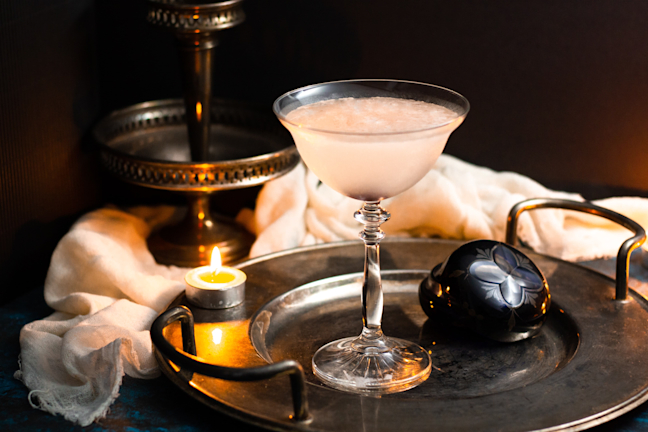
Corpse Reviver No. 2
Ingredients
- 22.5ml gin
- 22.5ml triple sec or dry Curaçao
- 22.5ml Cocchi Americano or Lillet Blanc
- 22.5ml lemon juice
- 1 dash absinthe, for the rinse
No. of Servings:
Garnish
Maraschino cherry
Instructions
Pour all ingredients, except for the absinthe, into a cocktail shaker filled with ice.
Shake until chilled.
Strain into an absinthe-rinsed coupe.
Garnish with a maraschino cherry.
Hints
Your Notes
0 / 500
Did you make this recipe?
Tag @cocktailarium.app on Instagram and add hashtag #cocktailarium